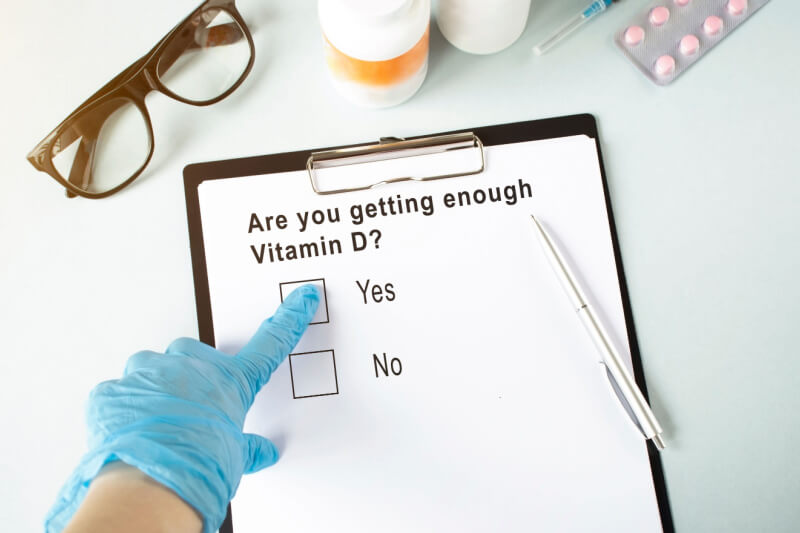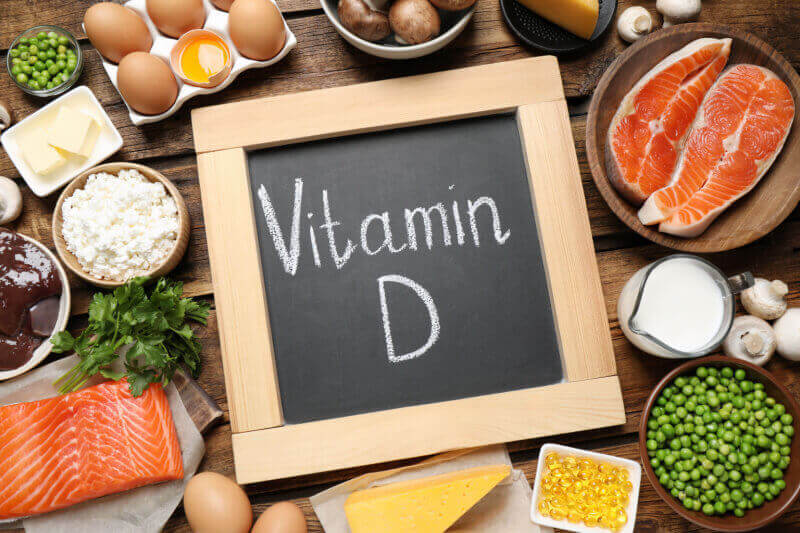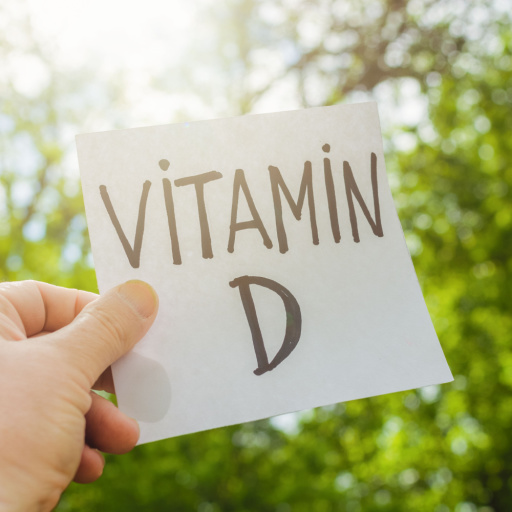What is vitamin D?
Vitamin D, despite its name, is a nutrient we eat and a hormone our bodies make in response to sun exposure. The compounds of vitamin D form vitamin D1, D2, and D3.
Benefits of vitamin D
Vitamin D has many benefits:
- It helps maintain healthy bones and teeth and prevents osteoporosis.
- Adequate vitamin D intake can reduce the risk of autoimmune diseases.
- The antioxidant properties of vitamin D may improve seasonal affective disorder (SAD), insomnia, and depression.
- Increasing vitamin D intake can prevent colds, flu, or other respiratory infections.
- Vitamin D may increase insulin sensitivity, bolster beta cell function, and reduce inflammation, helping individuals manage diabetes.
Factors of deficiency

Although the body can create its vitamin D, some people are at a higher risk of deficiency than others.
- During the colder months, individuals might not get adequate vitamin D which may affect their neurotransmitter serotonin. Individuals who work a night shift or live in northern latitudes or areas of high pollution due to smog and fog in winter experience a lack of sun exposure. They can consume food supplements to make up for this vitamin D insufficiency.
- Older adults don’t get enough sunlight as they spend more time indoors. The skin’s ability to synthesize vitamin D also decreases with age.
- High levels of body fat in people with obesity can limit the body’s ability to absorb vitamin D from the skin.
- Skin pigmentation can also reduce the body’s ability to absorb the sun’s ultraviolet rays.
- In people who have undergone gastric bypass surgery, the upper part of the small intestines, where Vitamin D is absorbed, is removed.
- Vitamin D is a fat-soluble vitamin that depends on the gut’s ability to absorb dietary fat. Therefore, individuals with inflammatory bowel disease or other similar conditions that disrupt the normal digestion of fat may also be at a higher risk of facing deficiency.
- Lactose-intolerant people or those who follow a vegan diet also face vitamin D deficiency.
Symptoms of low vitamin D
Take a look at the symptoms or harmful effects of vitamin D deficiency:
- Diseases caused by lack of vitamin D include rickets in children, leading to a bowl-legged appearance or osteomalacia in adults due to softening of the bones. Chronic vitamin D deficiency can cause hypocalcemia, a calcium deficiency disease. This can potentially result in osteoporosis or bone pain.
- A lack of vitamin D can cause muscle weakness and twitching, leading to myalgias or muscle pain.
- It can also cause arthralgias or joint stiffness.
- One of the symptoms of vitamin D deficiency is hyperparathyroidism, wherein the parathyroid gland creates a hormone imbalance that raises blood calcium levels.
- Long-term deficiency can result in pregnancy complications, infections, autoimmune problems, cardiovascular conditions, neurological diseases, or certain cancers.
How to prevent deficiency?

If you are trying to figure out how to increase vitamin D, try the following ways to get your daily dose of vitamin D:
- Ensure you get enough sun exposure. The best time to sit in the sun for vitamin D is early in the morning, from 7 a.m. to 9 a.m. 10-15 minutes of sun exposure every day can help generate sufficient vitamin D. But be careful about excessive sun exposure without sunscreen, as the sun’s harmful ultraviolet rays can cause skin cancer.
- People at risk of vitamin D deficiency can depend on vitamin D food sources, such as egg yolks, cheese, beef liver, mushrooms, fortified milk, breakfast cereals, yogurt, fatty fish (salmon, mackerel, and tuna), molasses, and fortified cereals and juices.
Stay active in the Activ Living Community to find more details on lifestyle and fitness.





 1800-270-7000
1800-270-7000







